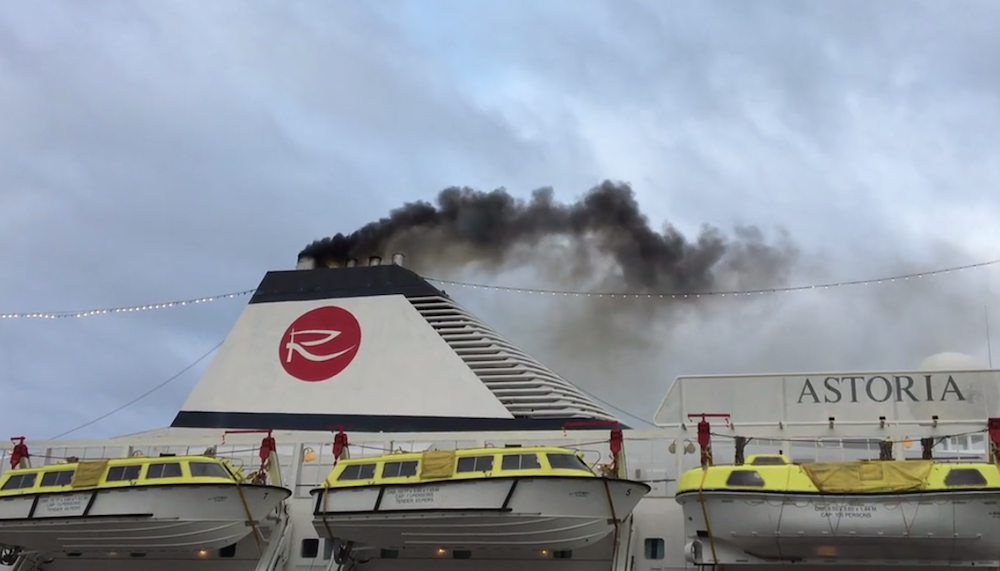An HFO ban would only mean minimal cost increases, a Greenland study finds
Nuuk says it is prepared to support an Arctic-wide HFO ban after calculations show its financial impact would hardly be noticed by consumers.

Ask environmentalists what the problems of using heavy fuel oil are, and they will tell you there are two: When burned, the fuel harms people’s health and the environment. And, if a ship using it as fuel or carrying it as cargo has an accident that results in a spill, it’s harder to clean up than other, lighter fuels. In the Arctic, cold temperatures make this even harder.
Shippers don’t disagree, but they point to a problem they say prevents them from adopting the cleaner alternative — a lighter type of fuel known as distillate — before there is a rule requiring them to do so: Distillate costs nearly twice as much as HFO, and being the first one to adopt it would put them at a disadvantage compared with those who do not.
In April, the International Maritime Organization, a UN body, agreed to begin working out the details of a ban on HFO in the Arctic similar to one already in place in the Antarctic. A limited ban that applies only to the Arctic say those that operate in the region, is unfair, particularly if it means they cannot carry HFO as cargo, since that would prevent them from switching over when sailing in areas where the cheaper fuel is permitted.
“We are likely to be positive about a ban on using HFO in the Arctic,” Verner Hammeken, the managing director of Royal Arctic Line, a Greenlandic firm, said earlier this year, “but when others are able to burn HFO elsewhere, we too want to be able to do the same. We can’t do that if we cannot have HFO in our tanks while in Greenlandic waters.”
A ban on transporting fuel may, however, be what he is handed if any regulation on HFO in the Arctic comes into force sometime after 2020.
When the IMO subcommittee working out the details of the ban meets in October, it will have the backing of Greenland’s Self-Rule Authority to implement a complete ban on HFO in the region. The decision comes after it released the details of a study on Tuesday concluding that the cost of a ban would amount to 8 million kroner ($1.25 million) annually — or 142 kroner per capita — chiefly in the form of higher costs for consumer goods for people living in urban areas.
The figures jibe with Royal Arctic Lines’ own calculations, and, say environmentalists, they underscore that the efforts to protect the environment and people’s health need not come at a high price.
“This is really an insignificant amount,” said Kåre Press-Kristensen, a senior advisor with the Danish Ecological Council. “It’s been our position all along that that the cost was minimal, but here we see it in black and white.”
One concern about banning HFO in the Arctic is that it could harm tourism in countries like Greenland by making it more expensive for cruise ships to operate — a cost they would pass to passengers on in the form higher fares that could lead to fewer visiting the region.
[Shipping firms say a heavy fuel oil ban would raise costs for Nunavut]
That read, may not hold however: about 40 percent of the ships that call on Greenland have already stopped using HFO, and the typical additional cost for passengers on those ships, according to Press-Kristensen, is about €1 ($1.20).
“The fare for some of these cruises is €1,800,” he said. “Strictly speaking, that’s a fare increase, but it’s more of a selling point. Most cruise passengers don’t know what HFO is, or the problems it causes. When they do, they say they would be interested in paying more to sail on a ship that uses a cleaner fuel.”
Other environmental groups said Greenland’s decision to meant that it was a sign that lawmakers in the region had become aware of the risk of HFO.
“Greenland is a major Arctic shipping stakeholder and relies on regular shipments to supply its population. It’s impressive, and most welcome, that Greenland supports a ban on HFO in the Arctic, both as a fuel and as cargo,” said Bryan Comer, of the International Council on Clean Transportation.